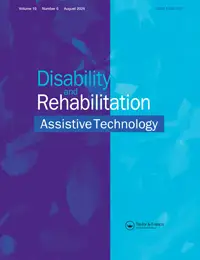
The Journey to a Functional Tics Diagnosis and Experiences of Post Diagnostic Support
Olivia Burn, Morvwen Duncan, Eve McAllister, et al.
Disability and Rehabilitation (2025)
- Clinical Study, Research Translation
Key Takeaways
- Adolescents with functional tics (FTs) and their families often feel misunderstood and face stigma.
- Getting diagnosed with FTs can provide clarity but often comes with a lack of support.
- Professional support and psychoeducation are crucial for managing FTs.
- Psychological interventions can significantly enhance the quality of life and family dynamics.
- More research is needed to understand the diverse pathways and effective interventions for FTs.
Click to read full summary
Overview
This study explored how adolescents and their parents experience a diagnosis of functional tics (FTs), focusing on their journey to diagnosis and experiences with post-diagnostic support. The study highlights the impact of FTs on young people and their families, emphasizing the stigma and challenges they face while navigating the healthcare system.
Discussion
The study involved seven females aged 12 to 18 with FTs and eight parents, recruited through a UK-based charity. Individual interviews were conducted and analyzed to gain insights into their experiences.
Participants reported:
- Feeling blamed or not believed by professionals and the community.
- The need for psychoeducation and a clear diagnostic process.
- Challenges in accessing timely support and specialized healthcare.
- The positive impact of psychological support and understanding.
The study suggests that while FTs have distinct characteristics, they are often misunderstood, leading to delayed diagnosis and inadequate support. The findings emphasize the need for tailored and integrated care that considers both psychological and neurological aspects.
Next Steps
If you have FND, here are some steps you can consider:
- Reach out to support groups or charities like Tourette’s Action for resources.
- Discuss the possibility of psychological interventions with your healthcare provider.
- Keep track of triggers and improvements to share with your care team.
- Connect with others who have similar experiences for peer support.
- Stay hopeful about advances in research that may improve future care.
Reference
Olivia Burn, Morvwen Duncan, Eve McAllister, Tara Murphy, and Alana Loewenberger. The journey to a functional tics diagnosis and experiences of post diagnostic support: perspectives from adolescents and their parents. *Disability and Rehabilitation.* (2025); doi:10.1080/09638288.2025.2477293.
This summary is provided for informational purposes only and does not constitute medical, financial, or legal advice. It is not intended to replace professional consultation or treatment. Always consult qualified healthcare providers regarding your specific circumstances, symptoms, or questions.
